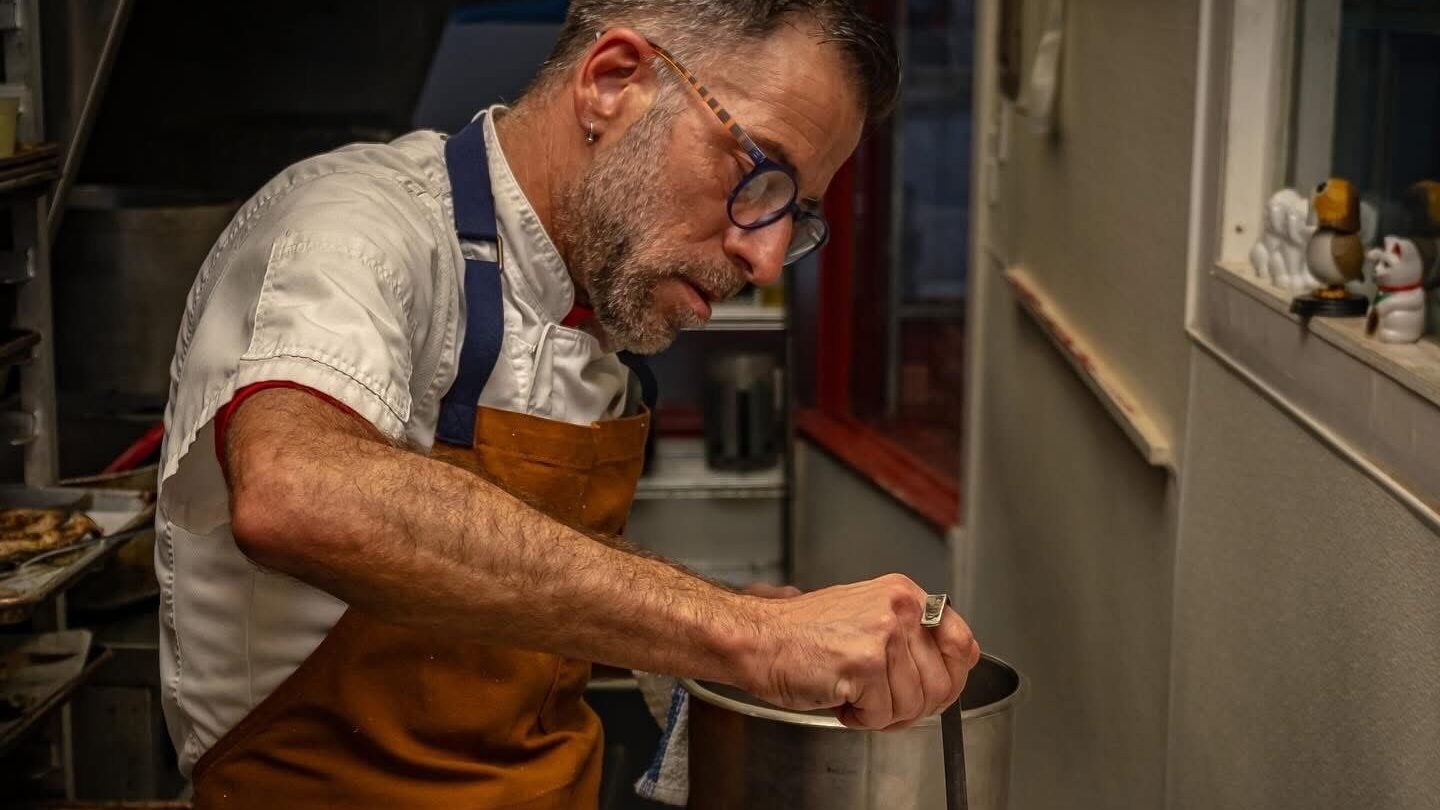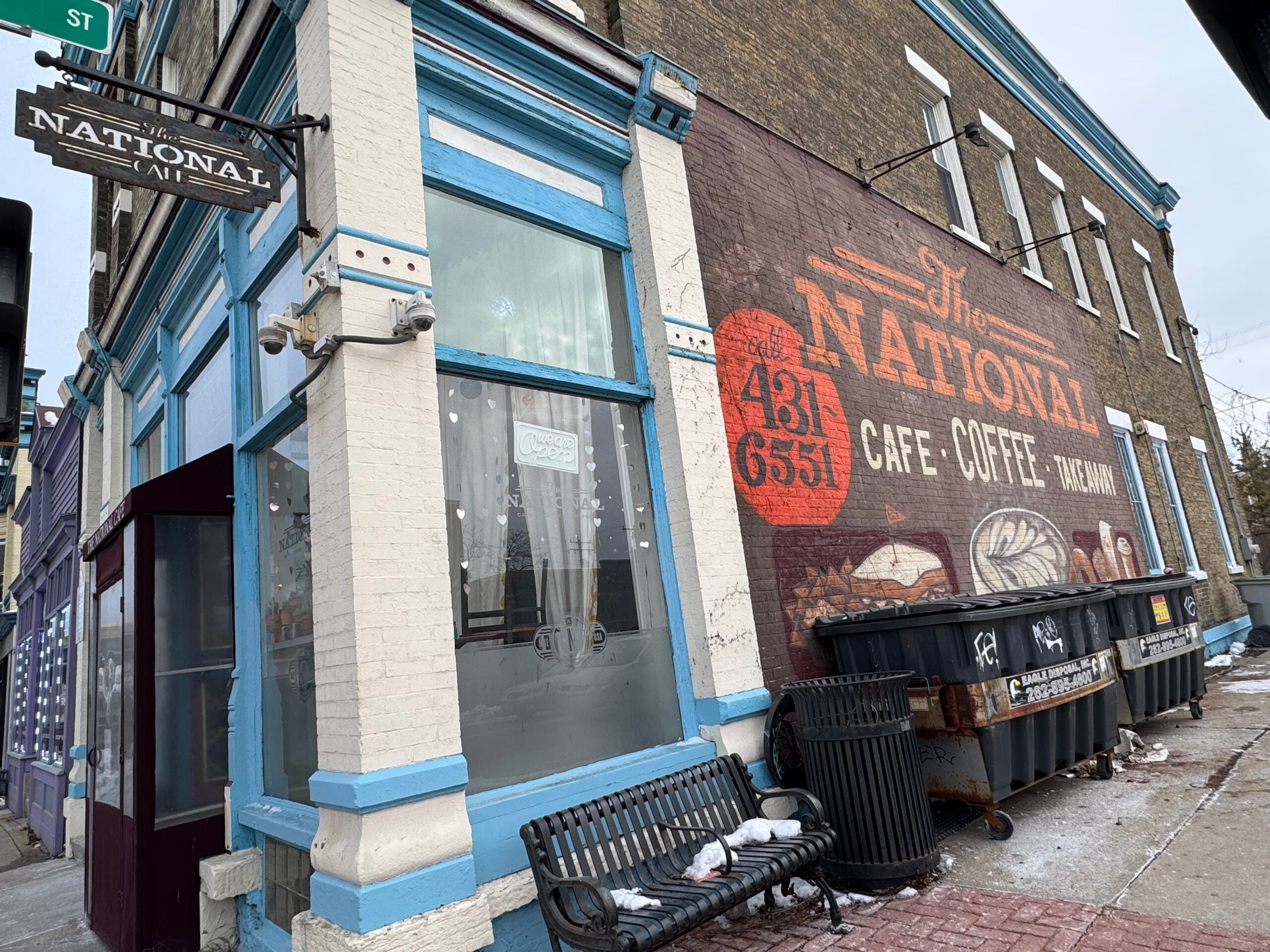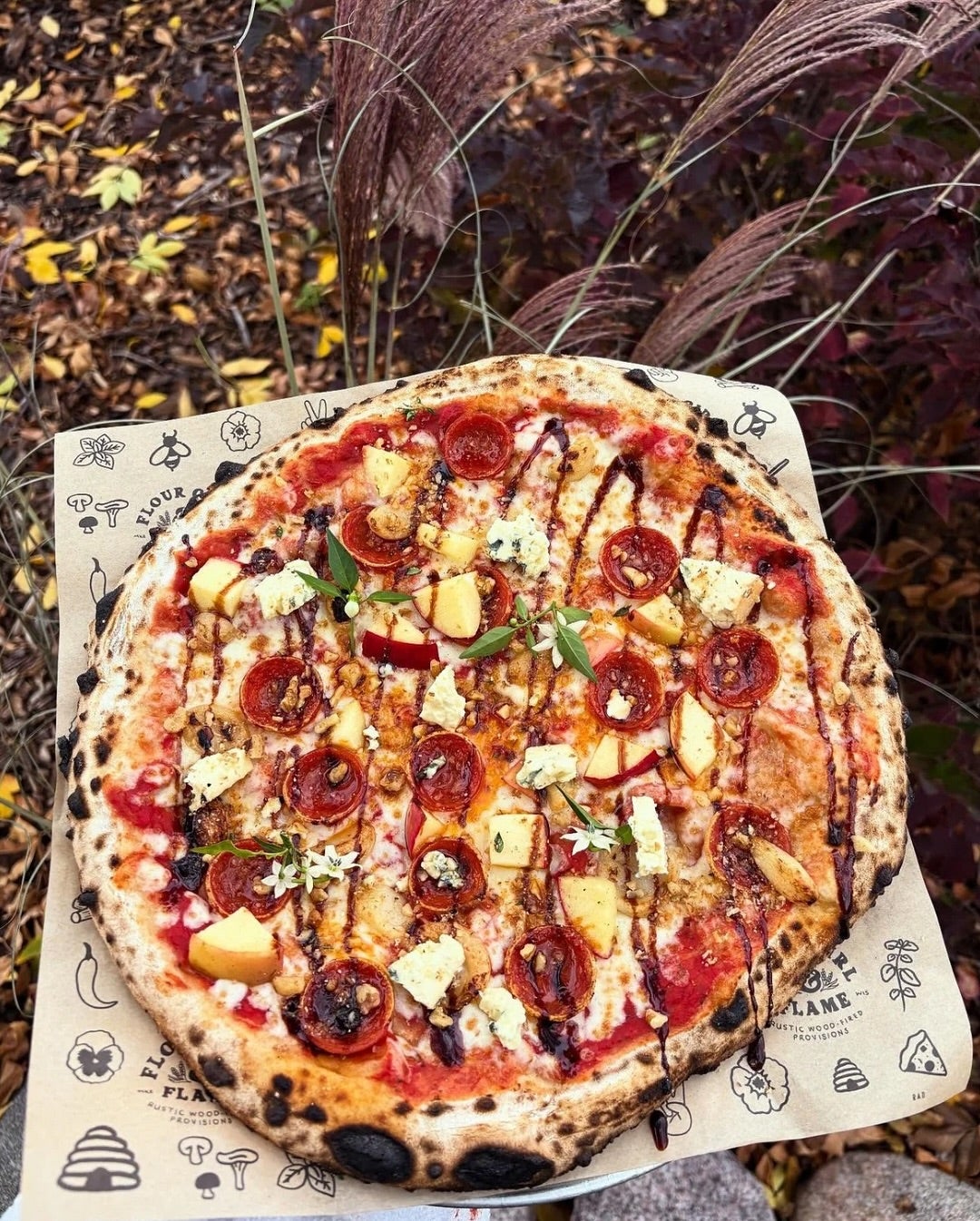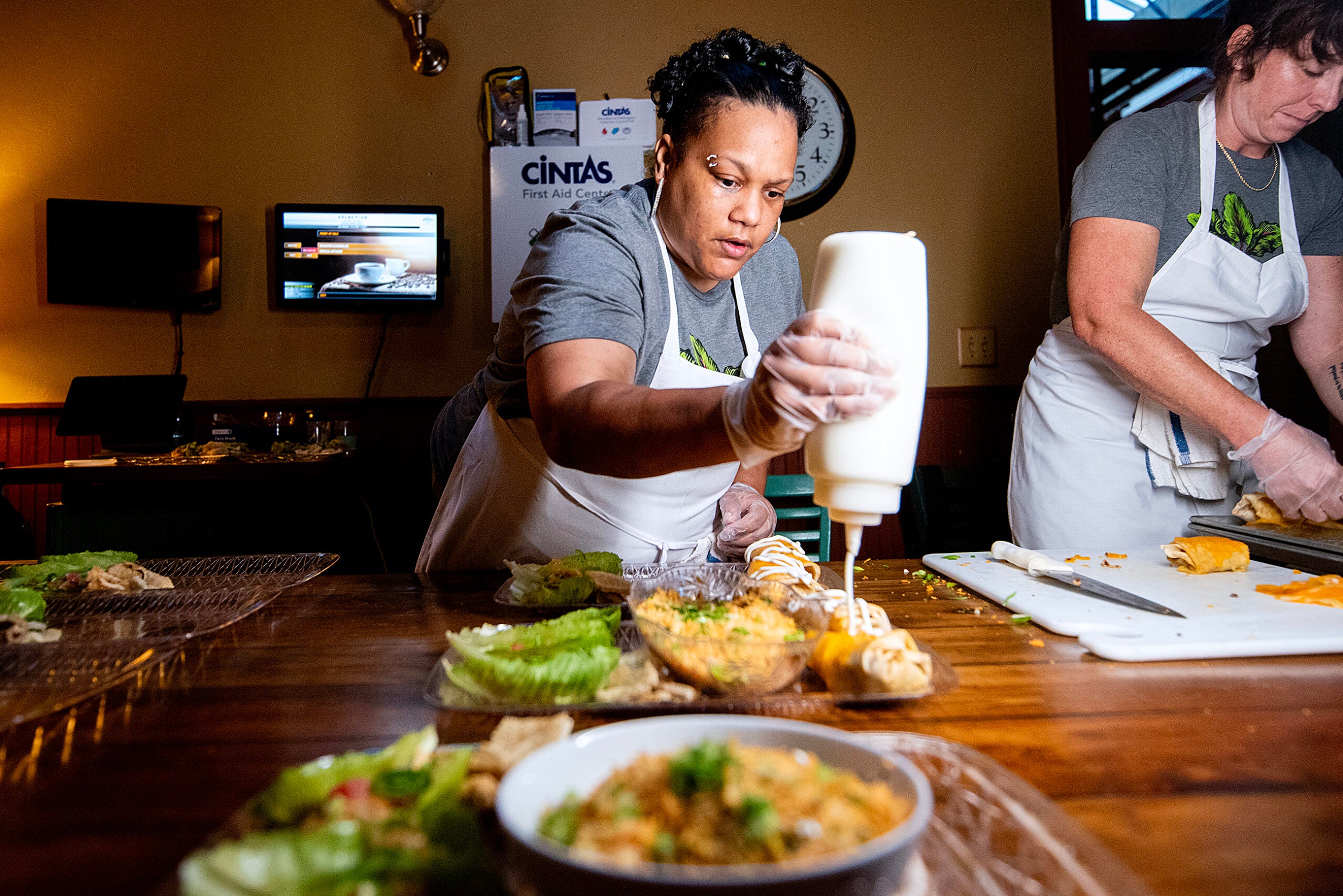For chef Gregory León, earning a fourth James Beard award nomination isn’t about him.
“It’s not just a reflection on me, it’s a reflection on my staff,” León told WPR’s “Wisconsin Today.”
“I don’t do everything here. I don’t cook all the food. I don’t take it to the tables,” he said. “It means that all the hard work that we’re putting into this and all the things that we give up for this career and this lifestyle are worth it.”
News with a little more humanity
WPR’s “Wisconsin Today” newsletter keeps you connected to the state you love without feeling overwhelmed. No paywall. No agenda. No corporate filter.
León’s restaurant Amilinda has been open in downtown Milwaukee since 2015. The restaurant focuses on creating food inspired by Spanish and Portuguese cuisine. León founded the restaurant after working in the culinary industry for 18 years in California.
For years, León has received critical acclaim from local magazines like Milwaukee Record and OnMilwaukee, among others.
But this year, León is a semifinalist for a national award from the James Beard Foundation for Outstanding Chef. He was nominated for the same designation last year. He was a finalist for a regional James Beard award for Best Chef: Midwest in 2022 and 2023.
León talked about what he called the Milwaukee food scene “renaissance” and what goes into his evolving menu.
The following was edited for clarity and brevity.
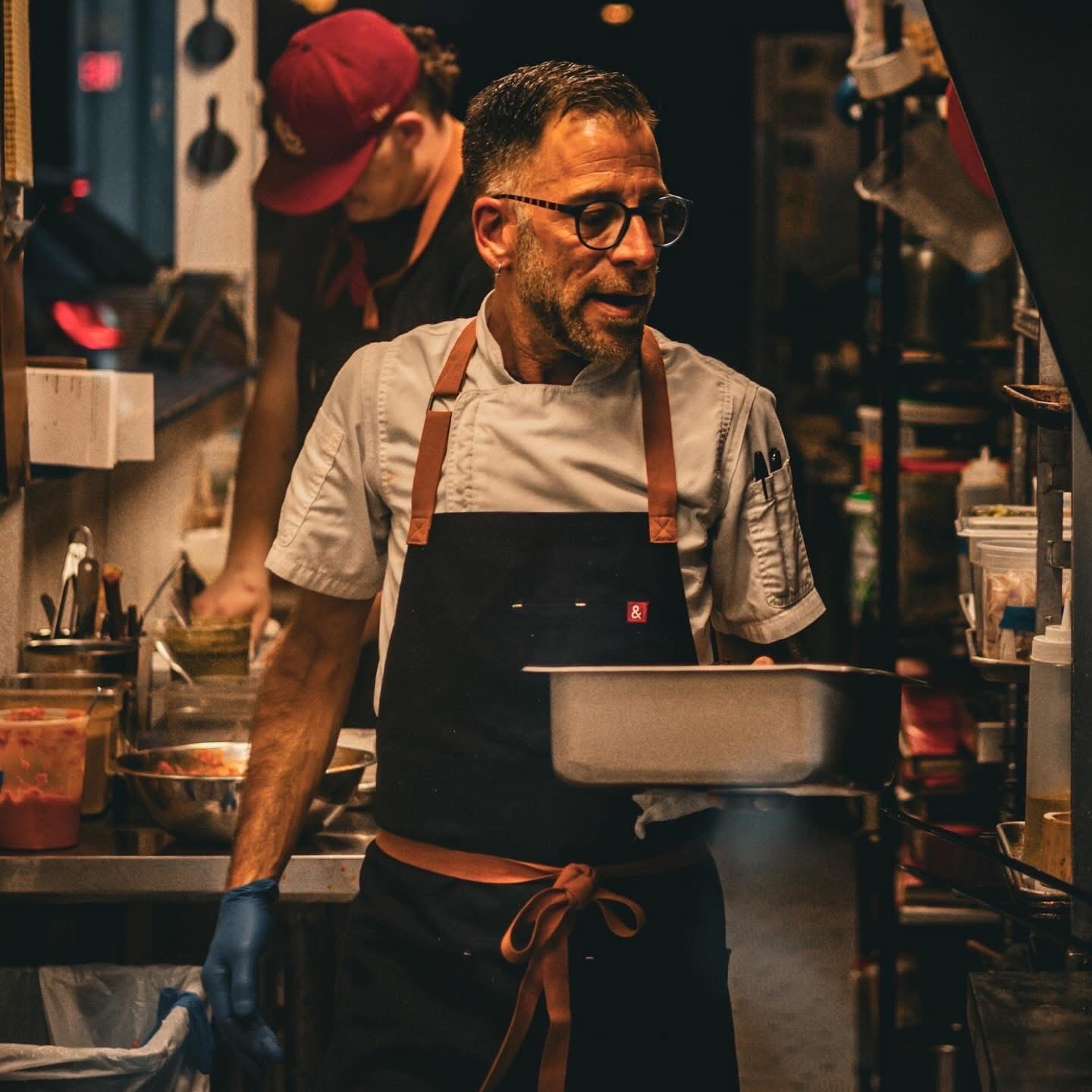
Rob Ferrett: You came to Milwaukee more than a decade ago. What is it about the Milwaukee food scene that didn’t just bring you here, but has you staying here and being an important part of this scene now?
Gregory León: I liked the fact that there’s a sense of community amongst most of the chefs and restaurant owners. Not all of us like each other — we’re humans — but I would say 80 percent of us are really good friends. We do stuff with each other and we help each other out.
There was a great food scene [when I arrived]. It was fairly young in a sense that Odd Duck had just opened. You had places like Braise and La Merenda. Those restaurants had been open for a while and were kind of trailblazers, in my opinion, in the Milwaukee dining scene.
The people just drew me in. That’s what it was. I discovered all these other things about the sense of community and all that once I started working on my restaurant. It was exciting to be part of a food scene that was having a renaissance.
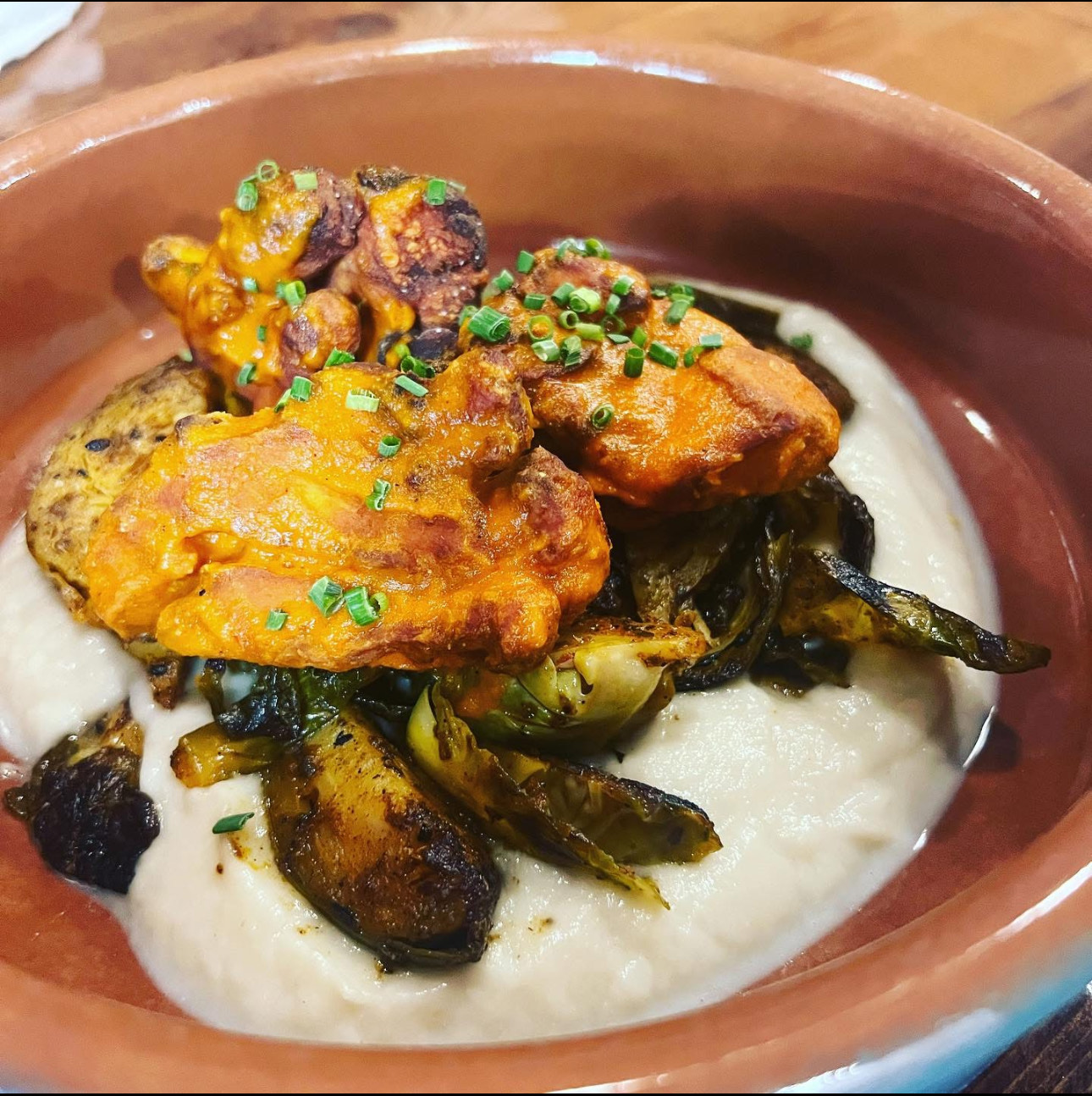
“I sometimes like to say that we’re merely translators for the ingredients. We’re helping them communicate their flavor and texture and color to the customer.”
Gregory León
RF: Amilinda makes food inspired by Spanish and Portuguese cuisine. Why focus on that part of the world?
GL: I had spent a lot of time in Spain. I love the country. I love the relationship they have with food and cooking. To them, it’s part of the day. It’s an event into itself. I love that part about Spain, and it’s the same thing for Portugal. It reminded me a lot of growing up in Venezuela.
I like that you eat their food, you put it in your mouth, and you’re like, “Oh, this is fairly complex and it’s got different textures and different flavors.” But when you’re putting it together, actually the preparation of it is not extremely complicated. They’re very minimalist, I think, when it comes to cooking. You want to start with some really great ingredients and just let them do the work.
I sometimes like to say that we’re merely translators for the ingredients. We’re helping them communicate their flavor and texture and color to the customer.
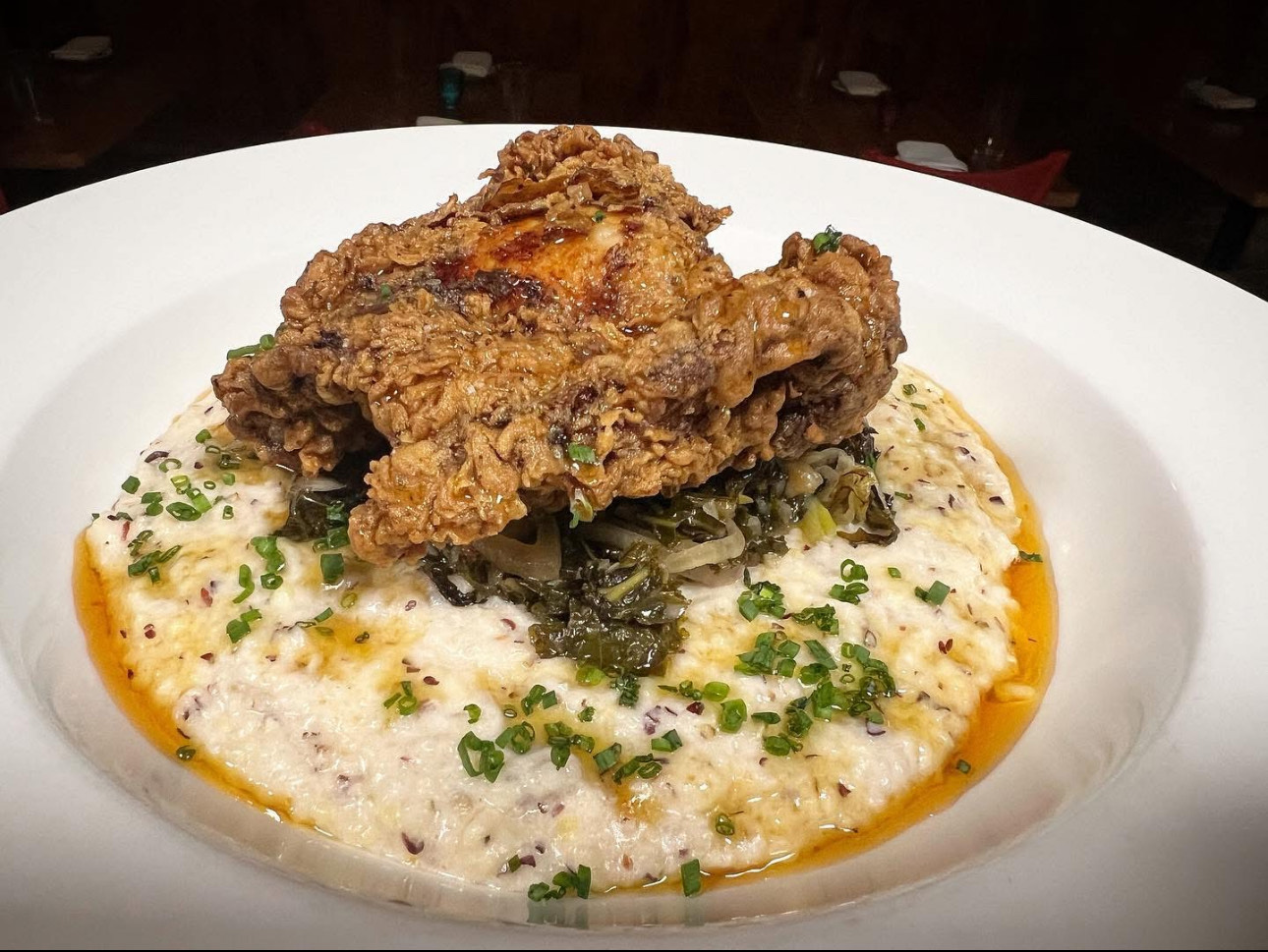
RF: You change your menu weekly. Why is that?
GL: Our menu is 12 items, usually as a minimum amount. Four-to-five starters, and then four-to-six entrees. Going back to when I was a line cook for somebody, you’re working at a restaurant where the menu stays the same for maybe three to six months at a time. You just kind of became a robot because you’re doing the same thing, day in and day out. I think that’s when mistakes start to happen. People start to get sloppy. They don’t care.
Sometimes it’s a whole new dish and sometimes it’s a matter of, “Well, I really like this kind of beef and I like the sauce, but let’s change up the vegetable or the starch that it’s going with.” It keeps everybody interested.
When we first opened, it was funny because the customers would get really mad. They would come and say, “I was in here two months ago and I had X-Y-Z, and I went there again!” And I’m like, “Well, we don’t have X-Y-Z, but we’ve got A-B-C.” Now, after 10 years, that’s what they’ve come to expect. It keeps us all engaged. That keeps our brains focused.
RF: Sometimes when we see kitchens in entertainment media, there’s an almost tyrannical aspect to the head chef. You’ve talked elsewhere about avoiding that and trying to help your staff grow as chefs. Why is it important to you to help develop some of the talent of the future?
GL: I started my cooking career in 1994. That gross behavior that we all associate with chefs was the norm. I remember working for people and not being motivated by that behavior. Ultimately, what we want to do here at Amilinda is put out some really good food and have people leave happy. And I think in order to do that, you have to have a staff that’s happy and wants to be there.
I think it’s great to look at these young cooks and see what they’re doing. They’re very innovative. Their brains are full of ideas — sometimes too many ideas — and they’re very ambitious. The future of Milwaukee’s dining scene is bright.
Wisconsin Public Radio, © Copyright 2025, Board of Regents of the University of Wisconsin System and Wisconsin Educational Communications Board.

